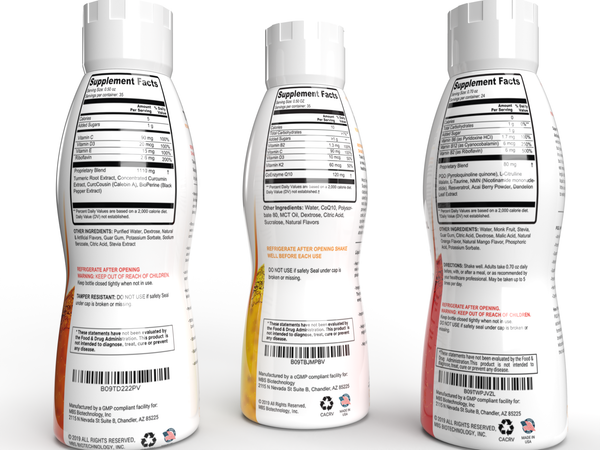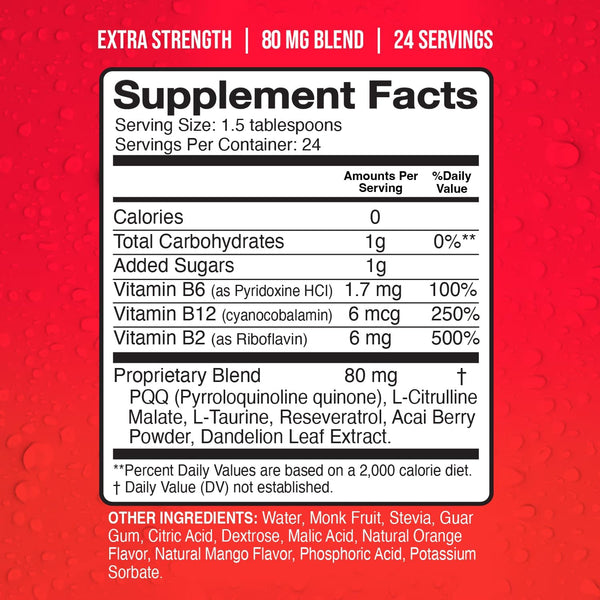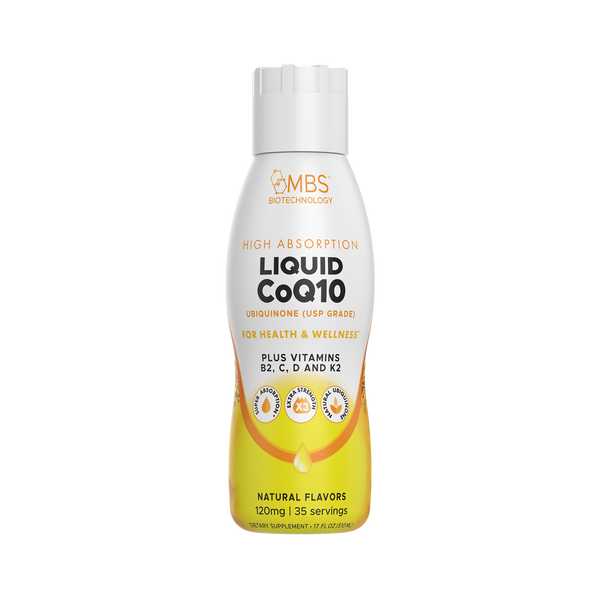
The Benefits of Vitamin D: Why You Should Consider Taking Vitamin D Drops
As we spend more time indoors and use more sunscreens, it's becoming increasingly difficult to get the necessary amount of Vitamin D from natural sunlight. This has led to many people suffering from a Vitamin D deficiency, which can cause a range of negative health effects. Fortunately, taking Vitamin D drops can help boost your levels and provide a wide variety of benefits to your body and overall health.
Symptoms of Low Vitamin D
Many people who are deficient in Vitamin D may not even realize it. Common symptoms of low Vitamin D include fatigue, muscle weakness, joint pain, and depression. More severe deficiencies can lead to bone pain and loss, osteoporosis, and other chronic health conditions.
Vitamin D is essential for overall health and well-being, and its deficiency can lead to various symptoms and complications. Some of the common symptoms of low Vitamin D levels include fatigue, muscle weakness, joint pain, and depression.
Fatigue is a common symptom of Vitamin D deficiency, and it can be caused by a lack of energy due to inadequate calcium absorption. When your body doesn't have enough Vitamin D, it can't absorb calcium properly, which can lead to muscle weakness and fatigue.
Muscle weakness is another common symptom of low Vitamin D levels. Vitamin D plays a critical role in maintaining strong muscles and keeping them healthy. A deficiency can lead to muscle weakness, which can result in difficulty climbing stairs, rising from a chair, or lifting objects.
Joint pain is also a common symptom of low Vitamin D levels. It is because Vitamin D is required for calcium absorption, which is essential for maintaining healthy bones and joints. A deficiency can cause joint pain, stiffness, and swelling, which can affect your mobility and quality of life.
In addition, Vitamin D deficiency has also been linked to depression, particularly seasonal affective disorder (SAD). SAD is a type of depression that occurs during the fall and winter months when daylight is limited. Vitamin D plays a crucial role in regulating mood and reducing inflammation, which can contribute to depression.
When Vitamin D Deficiency Occurs
Vitamin D deficiency is more common than you might think. It can occur in people who don't get enough sunlight, those who wear sunscreen regularly, and people with darker skin who require more sun exposure to produce Vitamin D. Additionally, older adults and those who are overweight may be at a higher risk of Vitamin D deficiency.
Vitamin D deficiency is a widespread issue, affecting people of all ages and backgrounds. The primary cause of Vitamin D deficiency is a lack of sun exposure, as the body produces Vitamin D when the skin is exposed to sunlight. Studies have shown that a significant number of people living in northern latitudes or areas with limited sun exposure are deficient in Vitamin D.
Furthermore, a diet lacking in Vitamin D-rich foods, such as fatty fish and egg yolks, can also lead to deficiency. Vegans and vegetarians who do not consume fortified foods or supplements may also be at risk of Vitamin D deficiency.
Aging and obesity have also been linked to Vitamin D deficiency. As people age, their skin becomes less efficient at producing Vitamin D, and the kidneys may have difficulty converting Vitamin D into its active form. Obese individuals may have lower levels of Vitamin D due to the vitamin being stored in fat cells instead of circulating in the bloodstream.
Numerous studies have linked Vitamin D deficiency to a range of health issues, including weakened immune function, bone loss, osteoporosis, and increased risk of chronic diseases like heart disease, diabetes, and certain cancers.
One study found that low Vitamin D levels were associated with an increased risk of developing depression in older adults. Another study suggested that adequate Vitamin D levels may help prevent cognitive decline and improve brain function in aging populations.
On the brighter side, getting enough Vitamin D can also have some fun benefits. Vitamin D has been linked to improved muscle function, better athletic performance, and improved mood.
How Liquid Vitamin D Helps
Liquid Vitamin D drops are an easy and effective way to increase your Vitamin D levels. Vitamin D drops contain high concentrations of Vitamin D, making it easy to get the recommended daily dose. Liquid Vitamin D drops are also more readily absorbed by the body, making them a more effective way to increase your Vitamin D levels than traditional capsules or tablets.
Vitamin D helps regulate the absorption of calcium and phosphorus in the body, which is essential for maintaining strong bones and teeth. Vitamin D is also involved in regulating the immune system, reducing inflammation, and supporting cardiovascular health.
How Liquid Vitamin D Absorbs in the Body
Vitamin D is a fat-soluble vitamin, which means it needs to be dissolved in fat in order to be absorbed by the body. Liquid Vitamin D drops are often combined with a carrier oil, such as coconut or olive oil, to increase absorption. The Vitamin D is then absorbed into the bloodstream through the small intestine and transported to the liver, where it is processed and released into the body.
Studies have shown that liquid Vitamin D drops have a higher absorption rate than Vitamin D supplements in pill form. This is because the liquid form allows for better dispersion and absorption in the digestive tract. In addition, liquid Vitamin D drops are typically more concentrated than pill supplements, meaning you can get a higher dose in a smaller amount.
Once absorbed, Vitamin D plays a crucial role in regulating calcium and phosphorus levels in the body, which are essential for healthy bones, teeth, and muscles. It also helps to support immune system function, reduce inflammation, and promote overall health and wellbeing.
Interestingly, the body can also produce its own Vitamin D through exposure to sunlight. When sunlight hits the skin, it triggers the production of Vitamin D in the body. However, the amount of Vitamin D produced through sun exposure can vary based on factors such as skin tone, time of day, and geographic location.
In conclusion, taking liquid Vitamin D drops is an easy and effective way to increase your Vitamin D levels, which can provide a wide range of benefits for your overall health. If you are experiencing any symptoms of Vitamin D deficiency, consider talking to your doctor about incorporating Vitamin D drops into your daily routine. With its ability to regulate calcium and phosphorus absorption, support immune and cardiovascular health, and more, Vitamin D is a vital nutrient that should not be overlooked.












